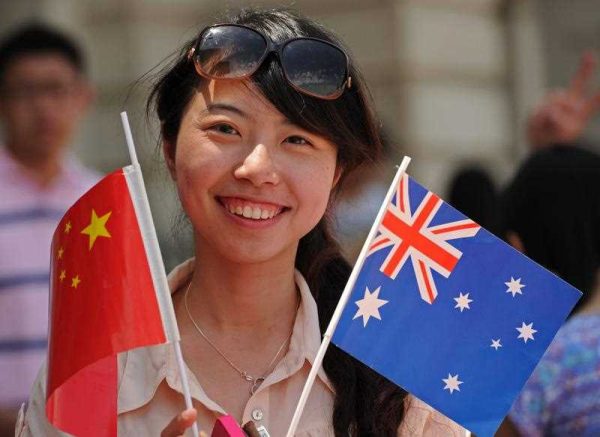Australia is well positioned to be an important player in the global arena, especially in Asia. Unlike Japan, Australia has no geopolitical conflicts with China, and does not need to worry about the so-called ‘China threat’. The economic structures of the two countries are complementary rather than competitive. China’s rapid economic growth in the last three decades has led to a boom in the Australian economy. China has become Australia’s largest trade partner: of every three dollars of the goods and services that Australia exports, one dollar flows from China. How can Australia leverage more out of its close economic relations with China? Apart from further deepening the bilateral economic cooperation through the newly endorsed free trade agreement, Australia and China can collaborate on several critical issues of importance to global governance, where Australia has the potential to increase its influence with China.
It appears that the China–Australia Free Trade Agreement, after nearly a decade of talks, will be finalised in time for President Xi’s state visit. This could benefit the Australian economy by around AU$2 billion (US$1.8 billion) a year. Besides the mining sector, which has gained a lot from China’s industrialisation and urbanisation, the services sector, which constitutes around 70 per cent of the Australian economy, will now have more access to the expanding Chinese market.
The world trade system is undergoing a rough transition. The WTO Doha negotiation remains stalled, and regional trade negotiations in Asia are as messy as a spaghetti bowl. The TPP, backed chiefly by the US, the Regional Comprehensive Economic Partnership (RCEP), proposed by the ASEAN countries, and the Free Trade Area of the Asia and Pacific (FTAAP), raised again by China at the APEC Summit meeting in Beijing, will be viewed by many as a competition for economic leadership in this region. Australia is in the unique position of being a partner in both the TPP and RCEP, as well as a major party in FTAAP from its origins. What worries China is a potential clash among blocs and backlash against globalisation. Australia, with its strong record of support for trade liberalisation and open regionalism, can help guide China and other countries through these issues as Asia’s dependable voice on trade negotiation.
Improving infrastructure can pave the way for long-term sustainable economic growth, create productivity-enhancing capacity in developed countries, and help alleviate poverty in developing countries. The demand for infrastructure investment is huge, yet there is a wide funding gap. Innovation and new institutions are needed for the financing of large infrastructure projects. In this context, China launched the 21-member Asian Infrastructure Investment Bank (AIIB). Australia showed interest at first, but has so far turned down the invitation to join.
Australia’s main concern, according to reports from the government, was the apparent lack of transparency of the structure of the bank. But if that were the case, Australia would have more influence by being involved than by standing outside. If China really wants to use the bank for its own benefit, then it would not have bothered to invite other countries to join. It is already investing billions of dollars abroad on infrastructure building, and will continue to do so. The reason that China took the AIIB initiative, which ties its own hands by joining a multilateral institution, is to shoulder more responsibility and increase its credibility as a global partner. Joining the AIIB still provides Australia with an opportunity to influence the direction and operation of this new international organisation.
Australia has made a great contribution to the G20 by insisting on economic growth as the priority of the agenda. Rather than finger-pointing and blame-shifting, now member countries are trying to work together on a series of practical issues like infrastructure investment, international tax cooperation, and job creation. While the legitimacy of the G20 has declined in the last several years, the success of the Brisbane G20 Summit will help to boost morale.
A number of think tanks in China and elsewhere are urging China to offer to take the presidency of the G20 in 2016. If this occurs, it would provide another chance for Australia and China to work closely with each other on global governance. In the G20 a ‘troika’ made up of the current, immediate past and next host countries work together on the summit agenda. If China takes the 2016 presidency, the troika would consist of Turkey, Australia and China.
China is rising steadily and trying to find its place in the new alignment of global power. The G20 is a major platform for dialogue and coordination between developed and developing big countries. China feels far more at ease at the G20 than in other forums like the G8. China needs the G20, and the G20 needs China. If and when China assumes the presidency, it should seek to strike a balance between the developed and developing countries in a well-designed agenda and through efficient organisation. This would boost the credibility of G20 greatly. Australia could provide valuable help in getting the right outcome.
The coming two years may well provide a special window of opportunity for progress in Sino–Australian cooperation. If this is to be the case, both countries will have to adopt a more forward-looking and proactive attitude. Each country has its own different diplomatic tradition, but to foster collaborative relationships, they will need to develop a habit of thinking collectively about common challenges of global economic governance together.
Dr He Fan is Deputy Director of the Institute of World Economics and Politics in the Chinese Academy of Social Science and currently Visiting Fellow at the Australian National University.

